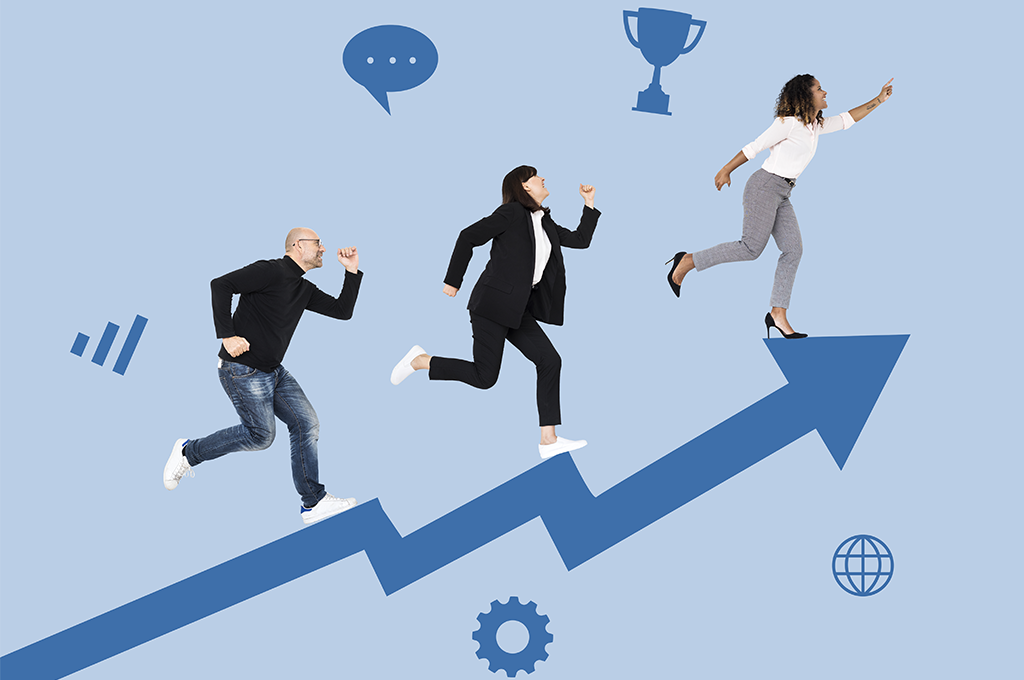How to maintain emotional balance in a world with exponential changes in which we were trained for progressive changes?
What to do to lead a sustainable life with the high level of stress and uncertainty and the multiple demands that we have today?
How can we overcome difficulties by facing them with optimism and keeping the focus on our vital objectives?
Resilience is defined in Psychology as the human capacity to flexibly assume extreme situations and overcome them and in Physics as the memory capacity of a material to recover from a deformation, product of an external effort.
It is therefore, elasticity, resistance, overcoming and energy recovery power. It is optimism, focus, mental strength and ability to adapt. A skill that already makes a difference today in the most successful employees and companies, regarding about this Aristotle reflected: “we are what we do day after day. Excellence is not an act, but a habit”.
We live in a world saturated with changes, technology and complexity. And that generates perplexity, anxiety and confusion. Traditional management systems no longer work. New tools and a new mentality are needed to navigate in the current context and facilitate the achievement of short and long term results.
Therefore, resilience is a magnificent ability to design better responses, along with emerging elements for decision making such as uncertainty management, agility, intuition, artificial intelligence or the greater involvement of key stakeholders (employees, customers, suppliers, shareholders. ..) in the strategic definition and design of products and services.
And what characteristics differenciate resilient employees? These are the 8 distinctive attitudes and capabilities:
1. They choose an inspiring purpose for their personal and professional life: they walk towards their dreams with responsibility, passion and a vocation to contribute to the improvement of society.
2. They establish good interpersonal relationships. Your “social capital” of family, friends, professional colleagues and connection to the community helps you overcome bad times.
3. They do not look at crises as obstacles but as opportunities to discover. Errors at work are valuable sources of learning for them. For this they focus on continuously increasing their level of self-confidence.
4. They accept that change is part of life and they see not only the risks but the part of opportunity for their personal improvement and contribution to the company.
5. Live richly in the present, learning from the past but above all they are “futuristic” beings (in the words of Julián Marías), because they live projecting themselves always, in a healthy tension of personal transformation.
6. They are positive, realistic, are supported by a sense of humor, accept criticism and surround themselves with positive people.
7. They take care of their health with good daily habits (sleep, food, sports, stress management …) because they are aware of the important self-demand that leads to a high-performance professional career for several decades.
8. They combine the short and long-term results orientation.
9. They manage the “micro-adversities” and they are focused on “microchanges” to get to the higher level of excellence.
10. They develop their skills of deep understanding and solving complex problems to achieve the best collective results.
Albert Einstein said: “there are only two ways to live your life: as if nothing were a miracle or as if everything were a miracle”. And at the same time he mentioned: “without crisis there is no merit or challenge and without challenges life is a routine, a slow agony”.
Today’s life is not the color of roses and at the same time it is clearly better than the past in all aspects. And this “VUCA world” (volatile, uncertain, complex and ambiguous) reflects with harshness a time of paradoxes and polarities, of opportunities and risks. Therefore it is necessary to forge the character to succeed, and above all, have a full and satisfactory life.
Resilience becomes, therefore, fundamental in our vital “tool box” in this increasingly demanding and stressful context.
A valuable skill that makes it easier to overcome the frequent obstacles that will appear and take better advantage of opportunities and personal energy.
An attitude that strengthens our self-responsibility to assume with greater courage and success the reins of our lives, learning from our own and others’ experiences and maintaining a positive and balanced spirit.
David Reyero (with the collaboration of Miguel Angel Gallo, professor emeritus of IESE)
e-mail: David.reyero@sanofi.com / Twitter: @davidreyero73 / Linkedin: linkedin.com/in/davidreyerotrapiello/

Leave a Reply